Marine Security in the Digital Age is the Main Topic in the National Seminar of the International Law Section of the Faculty of Law, University of Lampung
22/10/2024 | mbkm | 0Bandar Lampung, 22 Oktober 2024 - The seminar organized by the International Law Section and the International Law Student Association (HIMA HI) of the Faculty of Law was attended by the Deputy Dean for Academic Affairs and Cooperation, Dr. Rudi Natamiharja, S.H., D.E.A., Secretary of the International Law Section, Siti Azizah, S.H., M.H., staff of the International Law Section. Vessel Traffic Services (VTS) of Panjang Port Lampung, as well as lecturers of international law section, namely Melly Aida, S.H., M.H., Ria Wierma Putri, S.H., M.H., Ph.D., Yunita Maya Putri, S.H., M.H., and students of Faculty of Law Unila. Also present was a lecturer from the Faculty of Law, University of Bandar Lampung, Risti Dwi Ramasari, S.H., M.H.
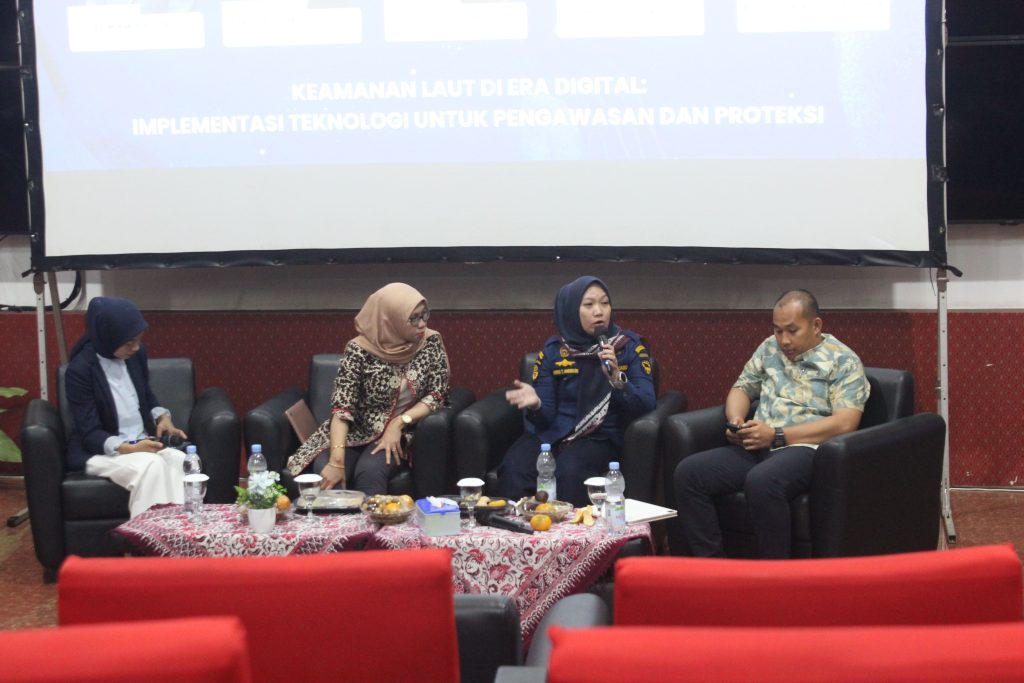

Agit Yogi Subandi, S.H., M.H., lecturer in the International Law Section and Chief Executive of this activity, in his speech underlined the important role of digital technology in changing the paradigm of maritime security. “Technology such as maritime drones, satellite-based monitoring systems“Cybersecurity and artificial intelligence (AI) now offer new tools to improve surveillance and protection of maritime areas. However, cybersecurity threats that could undermine maritime sovereignty are also a big challenge,” Agit said.
Agit emphasized that the seminar was designed as an in-depth interdisciplinary forum to examine how technology can support maritime security within national and international legal frameworks. “We hope this discussion can enrich insights and contribute significantly to the strengthening of Indonesia's maritime surveillance,” he added.
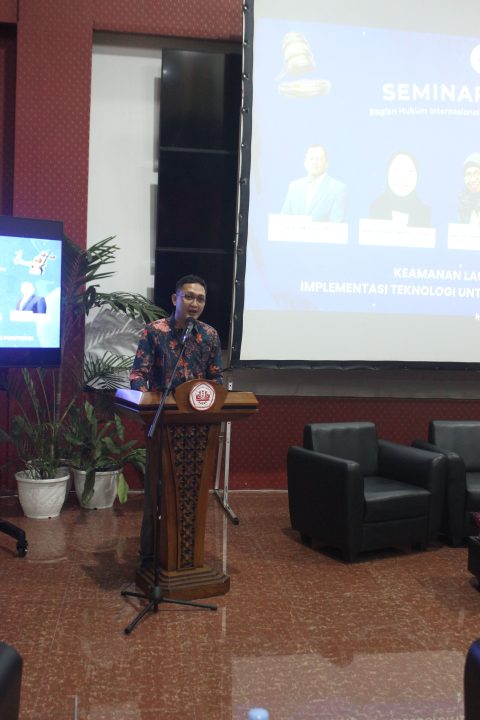
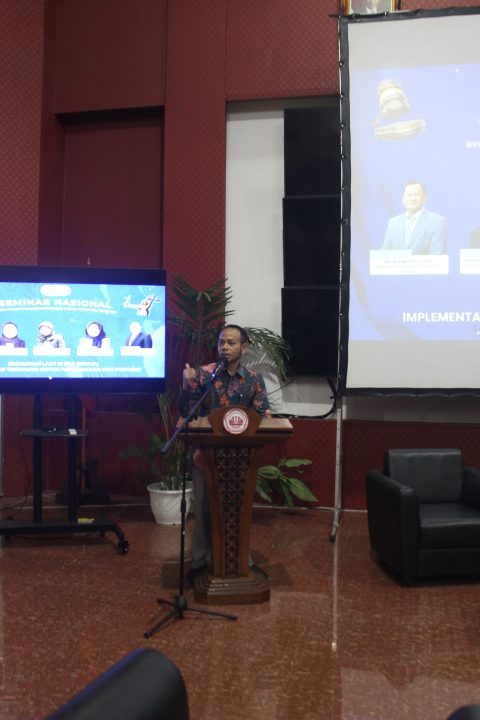
The seminar was also attended by the Vice Dean for Academic Affairs and Cooperation, who officially opened the event. In his speech, he appreciated the initiative of the International Law Section and emphasized the importance of developing scientific research in the field of maritime law and technology. “We hope this seminar can encourage lecturers and students to jointly develop research in the field of maritime security,” he said.
The seminar, hosted by moderator Rafika Rizky Aulia Rahman, S.H., M.H., lecturer at Unila's International Law Section, presented three keynote speakers who offered comprehensive perspectives on maritime security in the digital era. The discussion began with the presentation of Nadya Tris Anggraeni, Head of VTS at Panjang Port Lampung, who highlighted the urgency of technology-based maritime surveillance to maintain the security of Indonesian ports and waters. Nadya explained how the application of satellite and sensor-based monitoring systems at sea can provide a real-time picture of ship movements, which can help in preventing illegal acts such as smuggling and piracy. “This technology allows us to identify threats faster and more accurately, so that responses to potential dangers can be carried out more effectively,” Nadya said.
Furthermore, Prof. Dr. Emmy Latifah, S.H., M.H., an academic from the Faculty of Law, Sebelas Maret University, gave a view from the international law of the sea. In her presentation entitled Technological Development and Maritime Security (in the Perspective of the International Law of the Sea)Prof. Emmy examined how digital technology can be applied within the current framework of international law of the sea, such as the United Nations Convention on the Law of the Sea (UNCLOS 1982). She emphasized that while technology offers modern solutions for surveillance and protection of maritime areas, there are still legal gaps that need to be adjusted to anticipate these technological advances. “International law of the sea, especially related to maritime surveillance and sovereignty boundaries, must be able to adapt to technological developments. The implementation of technology must be in line with the principles set out in UNCLOS, particularly regarding the jurisdiction of coastal states and the rights of other states in international waters,” Prof. Emmy explained.
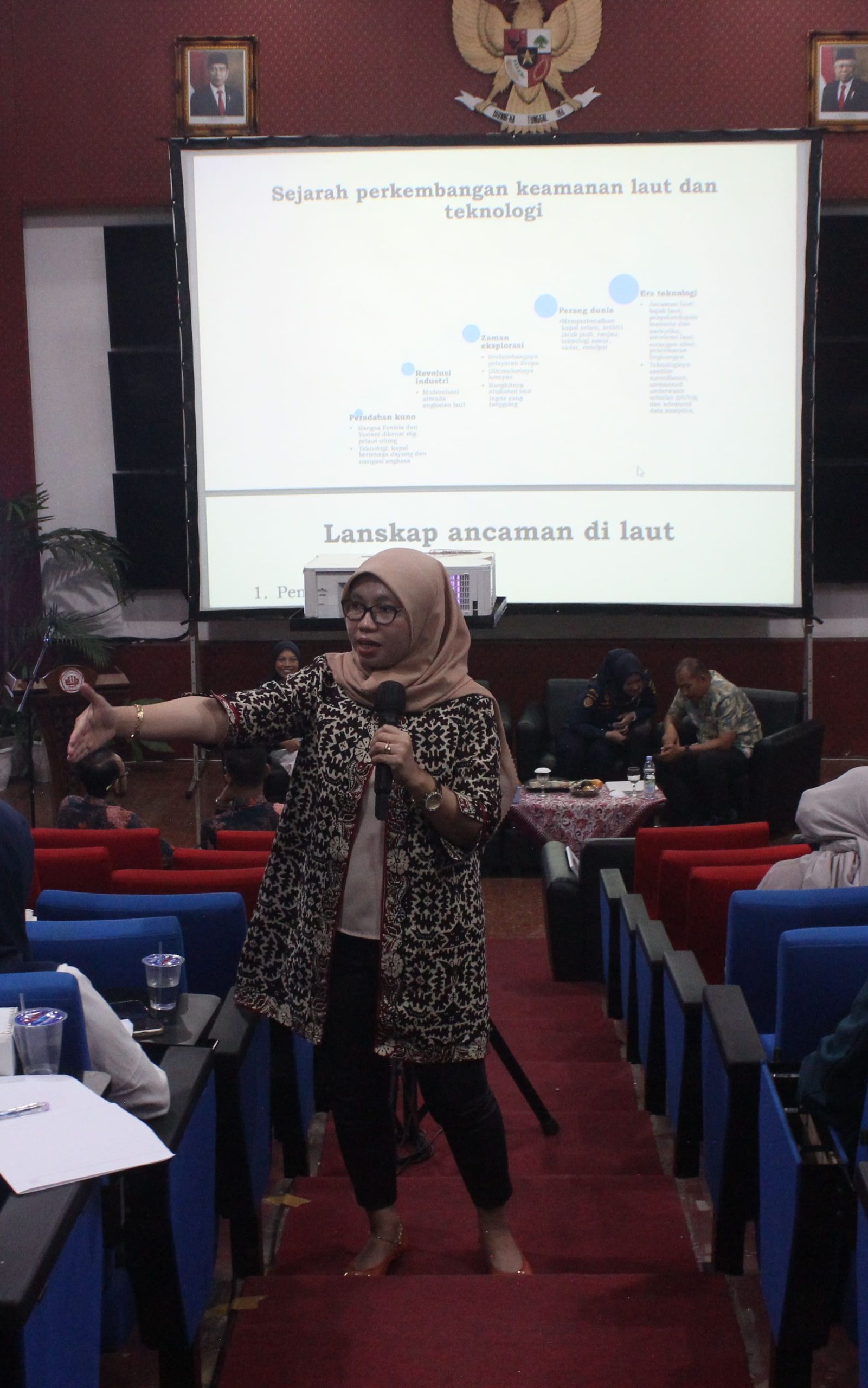
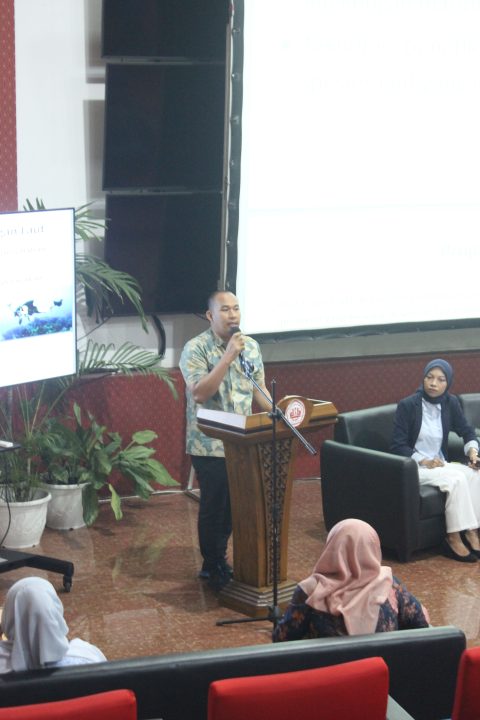
The next session ended with the presentation of Bayu Sujadmiko, S.H., M.H., Ph.D., an academic from the Faculty of Law, Unila, who explored more deeply the legal and policy challenges that arise in the era of digitalization of marine security. In his presentation entitled Utilization of Technology in the International Law of the Sea: An Analysis of the Contribution of Technology to the Management and Enforcement of the Law of the Sea, Bayu emphasized that while technology can provide significant solutions in monitoring and maintaining maritime security, it also raises new legal dilemmas, especially regarding privacy, data and cybersecurity issues. “We must consider how technology, such as marine drones and AI, can be used without violating the sovereign rights of other countries or posing greater security risks, such as cyberattacks on maritime infrastructure,” Bayu said.
Furthermore, Bayu also discussed the challenges of designing policies that are adaptive to technological change, while ensuring that the existing legal framework is able to guarantee a balance between security and the rights of states and other international actors. “The role of technology is not only important in surveillance and law enforcement, but also in the process of maritime diplomacy. The wise and targeted use of technology can support international cooperation, especially in the management of disputed sea areas,” he added.


Through these three perspectives, the seminar succeeded in opening new insights for participants on the importance of integrating technology in maritime security strategies, while still complying with existing legal frameworks at both national and international levels. These in-depth and interactive discussions created a synergy between legal theory and the practical application of technology in the context of maritime security in Indonesia.
With the end of this seminar, it is hoped that scientific research in the field of maritime security and technology application will continue to grow, as well as encourage more intense interdisciplinary dialogue between academics, legal practitioners, and other related parties.
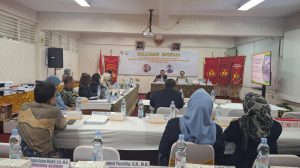
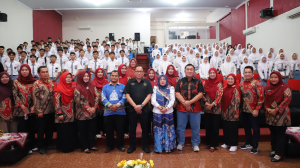
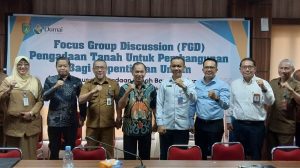


![[IMPORTANT ANNOUNCEMENT] INTERNATIONAL CONFERENCE ON CRIMINAL LAW INDONESIA (ICCLI) “Customary Law and Criminal Law Reform in Indonesia”](https://fh.unila.ac.id/wp-content/uploads/2025/10/WhatsApp-Image-2025-10-18-at-8.42.16-AM-300x168.jpeg)











Leave a Comment